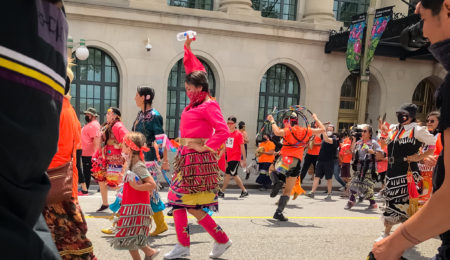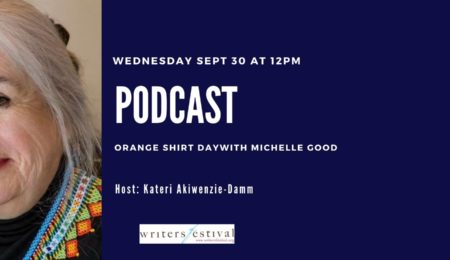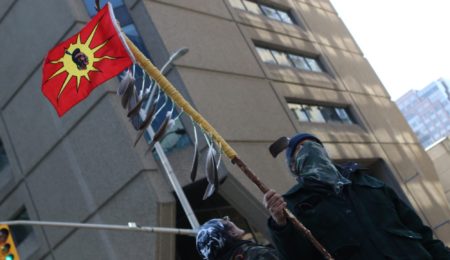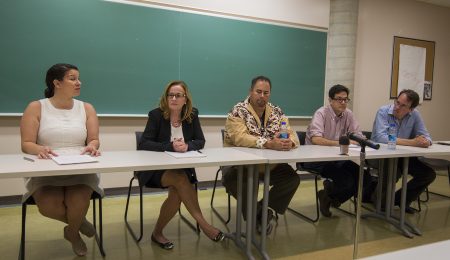Two monuments — one on campus and one just outside — commemorate the contributions of the Missionary Oblates of Mary Immaculate, a religious group instrumental in both the foundation of the U of O and of the residential school system.
residential schools
Demonstrators chanted, “No Pride in Genocide!”, “Shame on Canada!”, and “Bring them home!” as they marched on Parliament Hill.
In lieu of Orange Shirt Day on Sept. 30, here is a list of local events and content the University of Ottawa community can participate in.
One of the most recognizable acts of activism observed by non-Indigenous Canadians all over the country today is land acknowledgments. But while they are a way to reflect on Canada’s colonialist past and history of broken treaties, they fail to address its colonialist present and our collective lack of action when it comes to indigenous issues.
Through this editorial, we hope that we have opened your eyes to the issue and provided some insight on both ends of the argument. We encourage you to do your own research, and speak to your Indigenous classmates and colleagues to understand their thoughts on the ruling.
The poem “I’ll (Not) Be Home For Christmas” is a direct juxtaposition of Indigenous and settler children’s lives.
On Sept. 13 the University of Ottawa’s Faculty of Law teamed up with Amnesty International to present “Keep the Promise”, a seminar on the Site C dam—a hydroelectric dam being built near British Columbia’s Peace River—and its impact on local Indigenous communities.








